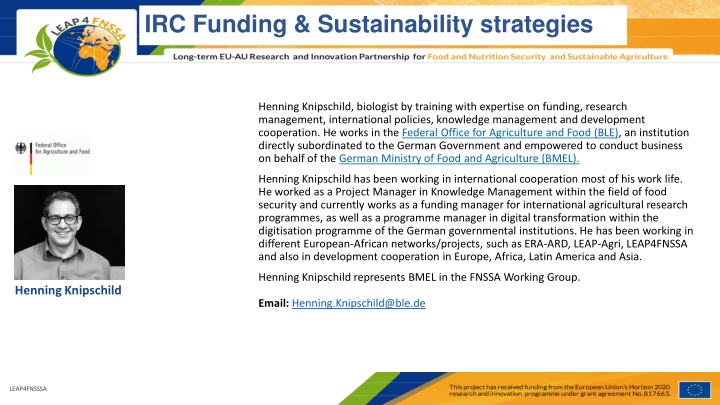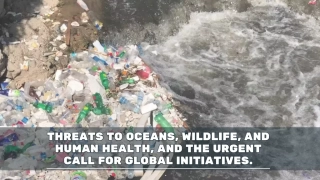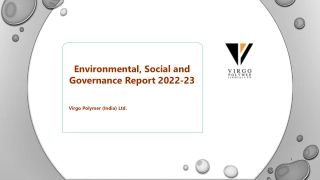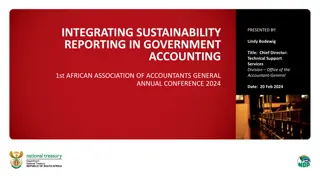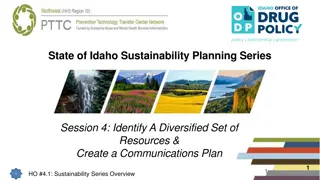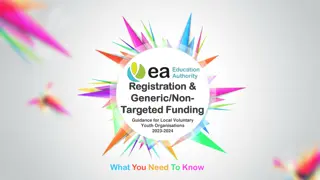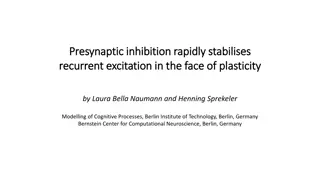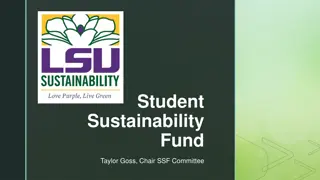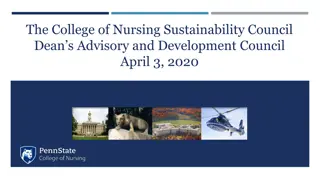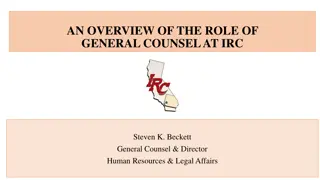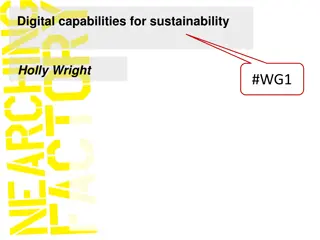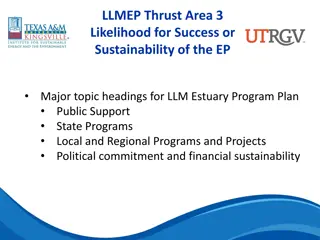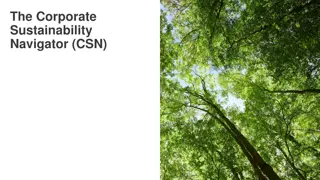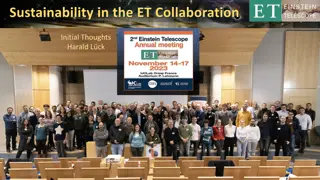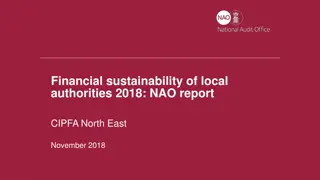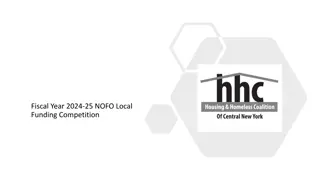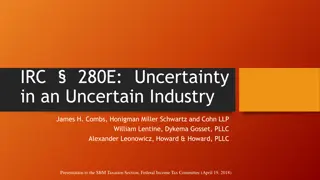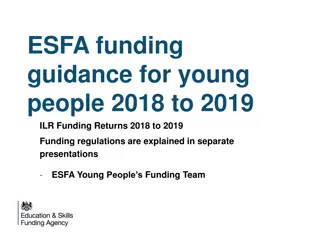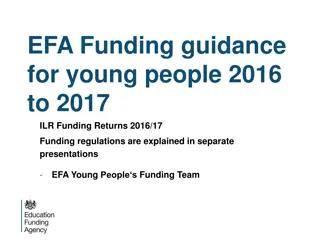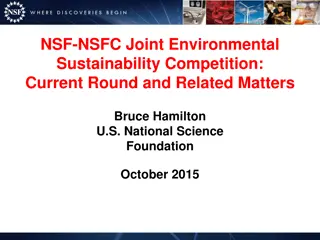IRC Funding & Sustainability Strategies by Henning Knipschild
Henning Knipschild, a biologist with expertise in funding, research management, and international policies, works in the German Ministry of Food and Agriculture. He focuses on international cooperation, digital transformation, and development projects. Knipschild is involved in various European-African networks and represents BMEL in the FNSSA Working Group.
Download Presentation

Please find below an Image/Link to download the presentation.
The content on the website is provided AS IS for your information and personal use only. It may not be sold, licensed, or shared on other websites without obtaining consent from the author.If you encounter any issues during the download, it is possible that the publisher has removed the file from their server.
You are allowed to download the files provided on this website for personal or commercial use, subject to the condition that they are used lawfully. All files are the property of their respective owners.
The content on the website is provided AS IS for your information and personal use only. It may not be sold, licensed, or shared on other websites without obtaining consent from the author.
E N D
Presentation Transcript
IRC Funding & Sustainability strategies Henning Knipschild, biologist by training with expertise on funding, research management, international policies, knowledge management and development cooperation. He works in the Federal Office for Agriculture and Food (BLE), an institution directly subordinated to the German Government and empowered to conduct business on behalf of the German Ministry of Food and Agriculture (BMEL). Henning Knipschild has been working in international cooperation most of his work life. He worked as a Project Manager in Knowledge Management within the field of food security and currently works as a funding manager for international agricultural research programmes, as well as a programme manager in digital transformation within the digitisation programme of the German governmental institutions. He has been working in different European-African networks/projects, such as ERA-ARD, LEAP-Agri, LEAP4FNSSA and also in development cooperation in Europe, Africa, Latin America and Asia. Henning Knipschild represents BMEL in the FNSSA Working Group. Henning Knipschild Email: Henning.Knipschild@ble.de LEAP4FNSSSA
IRC Funding & Sustainability strategies Funders landscape LEAP4FNSSSA
IRC Funding & Sustainability strategies Funders landscape LEAP4FNSSSA
IRC Funding & Sustainability strategies Future AU-EU Funders Collaboration Options for scenarios Options to pool resources Building of research alliances on a platform Funders become more active partners in research consortium. Build small alliances with multiactor approach. Flexibility through smaller consortia and less necessity to harmonise different agendas. Facilitates pooling of in-kind resources. farmer Private Sector R& NGO I consortium R& I National Funder Internatio nal Funder LEAP4FNSSSA
IRC Funding & Sustainability strategies Future AU-EU Funders Collaboration Options for scenarios Options to pool resources Building of research alliances on a platform Funders become active partners in research consortium. Build alliances with multiactor approach. Facilitates pooling of in-kind resources. farmer Private Sector R& NGO I consortium R& I National Funder Internatio nal Funder LEAP4FNSSSA
IRC Funding & Sustainability strategies What makes the difference : FNSSA funding? Challenges FNSSA R&I needs to trigger change and therefore requires Research with innovators Knowledge Management and outreach Strong networks to put research into use. R & I in FNSSA R & I Change > Flow of funds Relevant services to meet FNSSA Objectives Joint Theory of Change Collaboration with research fora Target group oriented Knowledge Management Involvement of relevant actors, Joint check against SDGs and other frameworks Links to other relevant initiatives Private sector farmers Actors in FNSSA R&I Funders Research NGOs Outreach to meet objective GOs Reporting, feedback (dialogue) research LEAP4FNSSSA
IRC Funding & Sustainability strategies What makes the difference : FNSSA funding? Challenges FNSSA R&I needs to trigger change and therefore requires Research with innovators Knowledge Management and outreach Strong networks to put research into use. R & I in FNSSA R & I Change > Flow of funds Relevant services to meet FNSSA Objectives Joint Theory of Change Collaboration with research fora Target group oriented Knowledge Management Involvement of relevant actors, Joint check against SDGs and other frameworks Links to other relevant initiatives Private sector farmers Actors in FNSSA R&I Funders Research NGOs Outreach to meet objective GOs Reporting, feedback (dialogue) research LEAP4FNSSSA
IRC Funding & Sustainability strategies 1. Providing Incentives for funders Funders control organisational structures through the definition of topics and rules for eligibility to use funds along the EU-AU FNSSA Roadmap, as well as international frameworks, such as SDGs. The IRC proposes to 1. provide services to jointly monitor these aspects 2. provide a high diversity of perspectives on activities. such as Knowledge Management, M&E, Q&A services, Conflict Management and especially Scaling-Up schemes to provide eligibility of cost items for projects LEAP4FNSSSA
IRC Funding & Sustainability strategies 3. facilitate the design of new funding instruments complementary to what being done what works 1. Providing Incentives for funders o Learning from lessons from the ERANET instruments - New type of ERANET? o Lessons from engagement of private sector (Africa and Europe) o Considering both funders and in-kind contributing institutions 4. Ensuring equity among members including funders 5. facilitate and capture R & I priorities in an ongoing basis and sharing with funders to provide a level of freedom in selecting aspect for investments A regional funders network is being proposed LEAP4FNSSSA
IRC Funding & Sustainability strategies 1. Short-term sustainability o Strategy is to maintain existing tools and products emanating from the LEAP4FNSSA o Reaching out to Member states and funders to constitute the Consortium 2. Providing the IRC funders toolbox 1. An IRC can facilitate Centralised calls to accomplish harmonisation of national funding regulations and eligibilities 2. Long-term sustainability o The inherent sustainability of the IRC will be assured if European and African institutions including member states continue being members of the IRC o Balancing cost and benefits (i.e. if they consider that the cost of being a member of the IRC is lower than the benefits this membership brings) 2. Facilitating the formation of simple research alliances to link up with international and interdisciplinary groups for joint launching of R & I LEAP4FNSSSA
IRC Funding & Sustainability strategies Linkage to AU & EU strategies, HLPD priorities, funding instruments o FNSSA alignment with European Green Deal and Farm to Fork Strategy, Agenda 2063, STISA, CAADP o Engagement with CCSE - LEAP-RE project and the STI Innovation Agenda o The IRC likely to be the implementer of the FNSSA aspects of the Innovation Agenda o With the FNSSA roadmap to end in 2025, the IRC is likely to trigger the review of update of the FNSSA Roadmap o The IRC to be considered as a possible special window within the Horizon Europe programming? o Informing and influencing Member states to allocate national budgets to R & I LEAP4FNSSSA
IRC Funding & Sustainability strategies Incentives to attract donors Alignment of the Donors thematic agenda with partners thematic agendas Options to embed the own agenda into structural framework of the network Interaction with actors to identify demand Contradictory motivation (?): collaboration and individual visibility Access to services: Outreach, knowledge management & capacity development Joint Monitoring and Evaluation LEAP4FNSSSA
IRC Funding & Sustainability strategies Incentives to attract donors Alignment of the Donors thematic agenda with partners thematic agendas Options to embed the own agenda into structural framework of the network Interaction with actors to identify demand Contradictory motivation (?): collaboration and individual visibility Access to services: Outreach, knowledge management & capacity development Joint Monitoring and Evaluation LEAP4FNSSSA
Future AU-EU Funders Collaboration Jointly launching research in FNSSA Food and Nutrition Security and Sustainable Agriculture THANK YOU Henning Knipschild Federal Office for Agriculture and Food, Germany Henning.Knipschild@ble.de LEAP4FNSSSA
